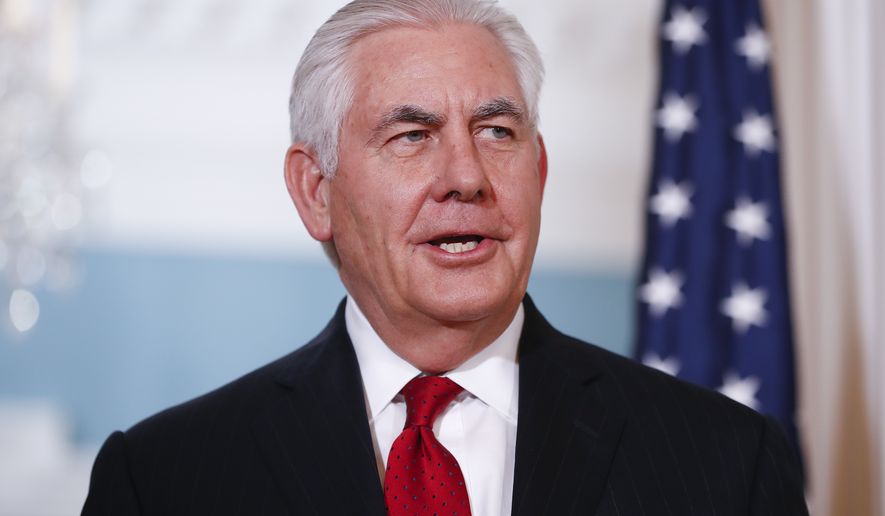China’s growing influence in Africa will be a core focus of Secretary of State Rex W. Tillerson when he embarks this week on his first visit to the continent as America’s top diplomat, U.S. officials say.
Mr. Tillerson leaves Tuesday on a trip that will include meetings with heads of state in Chad, Djibouti, Ethiopia, Kenya and Nigeria, and returns to Washington on March 13.
While State Department officials have said an key goal will be to explore how the U.S. can better position itself to support economic development across Africa, they’ve also expressed frustration over China’s expanding influence among several nations on the continent.
A major question facing Mr. Tillerson’s team is “how can we make China much more supportive of the overall development in Africa,” said one senior State Department official.
The official, who spoke on background with reporters Friday, lamented that China, Russia, North Korea and Iran increasingly are extracting “rare earth minerals” and other resources from several African nations in exchange for easy access and questionable financial loans.
It’s a situation that runs counter what the official claimed is Washington’s interest in “getting African countries … off of debt” in the post-colonial era.
“To see these countries re-indebted again [is] outrageous and terrible,” the official said.
The comments dovetailed with an assertion Mr. Tillerson himself made in early February, when he warned countries in the Western Hemisphere to be wary of “predatory” Chinese investment, claiming it’s reminiscent of European colonialism.
“China, as it does in emerging markets throughout the world, offers the appearance of an attractive path to development, but in reality this often involves trading short-term gains for long-term dependency,” Mr. Tillerson said in a speech at the University of Texas.
The senior State Department official said Chinese low-interest loans are warping the economic dynamics in several African nations by unnecessarily burdening the nations with debt.
“A lot of countries in southern Africa and parts of the east and west are having anywhere from 50 percent to, in one case, 200 percent of GDP debt,” the official said. “Eighty percent and 50 percent are probably Chinese loans, and that’s really not acceptable, and that’s an area that we really need to address and focus on.”
At the same time, the official said the U.S. and China have a “very complex relationship” when it comes to Africa and the two nations should work together toward a collective policy that better benefits the continent.
“We have a lot of areas and issues that we’re in conflict, but the issue comes in is that we’re trying to find the areas where we can build some type of support and cooperation that will be to the betterment of Africa,” the official said. “China builds things we don’t construct.”
“So in that regard, China can play a helpful role,” the official said. “China has some really good ideas on development in developing areas, such as how to do better healthcare, how to do water production. So those are things that are good.”
State Department officials said Friday that Mr. Tillerson hopes to explore discussions with African leaders on how to keep their resources and development “beneficial for the people of Africa.”
The officials noted the continent is projected to form 40 percent of the world’s population by 2100. While that means it could comprise more than 30 percent of the world’s workforce, there is the potential of a 50 percent unemployment rate on the continent, the officials said.
“That is a security issue, an economic issue problem, but more important, it’s also an opportunity,” said one senior State Department official. “So, the United States says, ’How do we position ourselves to play a significant role in supporting Africa … not only on economic and commercial development, but in the context of building strong institutions, governance, and security, as well as human rights?’”
• Guy Taylor can be reached at gtaylor@washingtontimes.com.




Please read our comment policy before commenting.